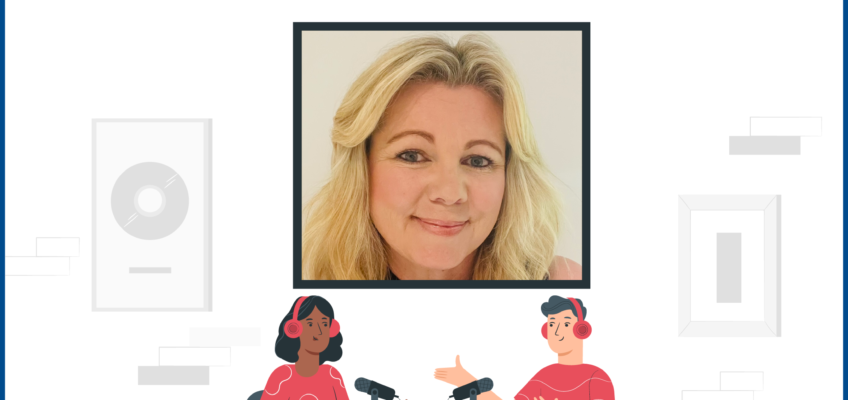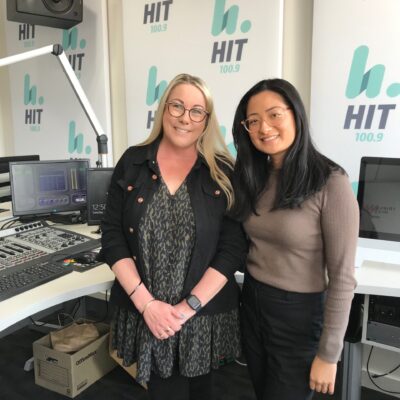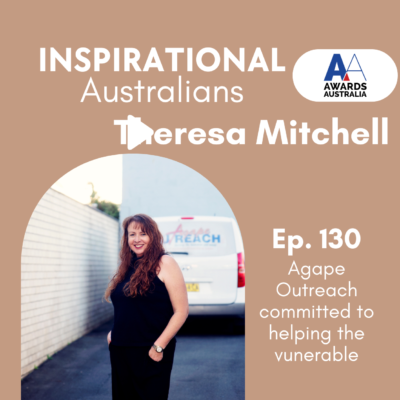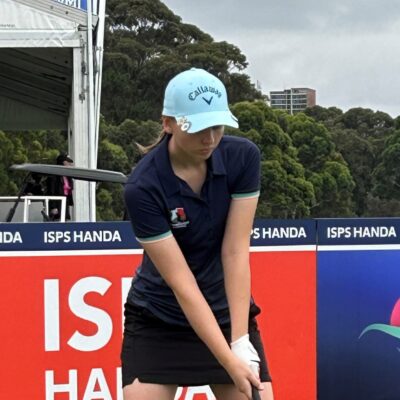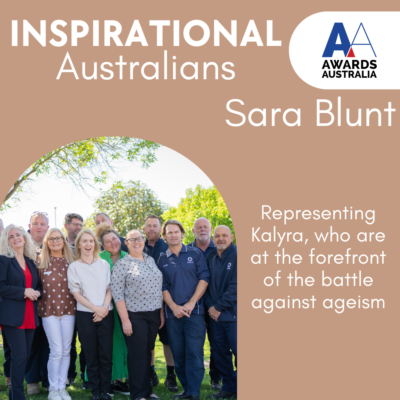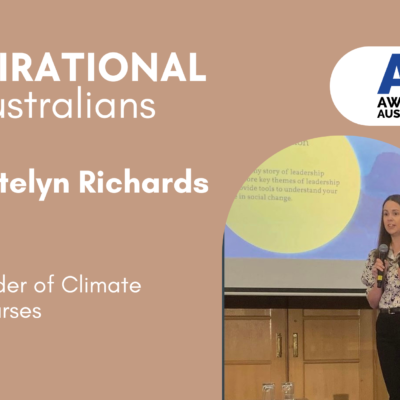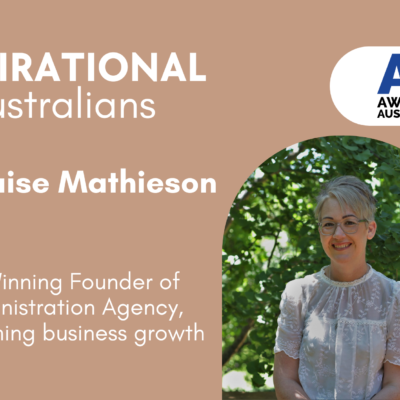In this week’s episode, Geoff is talking to Belinda Adams who was a Finalist in the 2021 Queensland Community Achievement Awards.
Belinda Adams, became a carer for her eldest son after he sustained a traumatic brain injury in a near fatal car accident in 2012, prompting her to drive around Australia on “Belinda’s Big Bus Tour for Brain Injury Awareness” distributing resources and raising awareness for people affected by brain injury. A strong advocate for diversity and inclusion, Belinda was then invited to speak at numerous events such as “Simply Humans – Unsung Heroes” in 2017, The Hopkins Centre’s Bold Idea’s, Better Solutions Rehabilitation panel discussion facilitated by award winning journalist Emma Griffiths for ABC Focus in 2018 and at WIFT’s (Women In Film & Television) panel discussion “Inclusion by Design: Creating an equitable environment on screen and behind the camera” at the Gold Coast Film Festival in 2019. Also in 2019, Belinda was invited to join The Hopkins Centre Ambassador Council and honoured with an Adjunct Research Fellowship at Griffith University. In this role she founded Ballet for Brain Injury, a dance rehabilitation program for people affected by brain injury, developed in partnership with and facilitated by Queensland Ballet. In 2021 Belinda completed a Postgraduate Certificate in Creative Business at the University of Canberra whilst working on some of Australia’s biggest film and television productions, currently as a Screen Queensland Attachment on NBC Universal’s Ticket to Paradise starring George Clooney and Julia Roberts. Belinda formed her own production company “Citrine Sun Entertainment” with a mission to tell authentic and inclusive stories receiving a Highly Commended for her “Ballet for Brain Injury” short documentary in 2021’s Focus on Ability Film Festival. Belinda was the recipient of an Australia Day Achievement Award in 2018 and in November 2021, was presented as a semi-finalist for the Australia Pacific Community Hero Award in recognition of her contributions to the community.
In this episode:
- Belinda and her family have been personally touched by brain injury, with her son receiving life threatening injuries following a car crash in March 2012. Belinda shares her story with others through her films and partners with Synapse in their mission to reconnect those in the community living with or affected by a Brain Injury.
- Want to chat? Belinda is happy to chat and give advice. Her email is: bizzjovi@gmail.com and her mobile is: 0146 894 7743
Links
Connect with Belinda on LinkedIn
Connect with Citrine Sun Entertainment on Facebook
Connect with Citrine Sun Entertainment on Instagram
Visit the Citrine Sun Entertainment website: www.citrinesunentertainment.com
Want to know how to Rate and Review a podcast, see this article
Follow us on our Inspirational.Australians Instagram Page
Want to nominate someone? (It can take as little as 2 minutes to recognise someone making a difference)
Like some more information on Corporate Partnership?
Transcript
[00:00:04] Belinda
Welcome to the Inspirational Australians podcast, where we chat to people, making a difference in their communities and in the lives of others. And here is your host for today, Geoff Griffin.
[00:00:21] Geoff
Welcome to the Inspirational Australian podcast stories of inspiring achievements and community contribution. Every week we celebrate an award program category. Winner or finalist. We hope you’ll be inspired and encouraged to know that Australia is in good hands, together with our corporate partners and not for profit partners, Awards, Australia, showcase ordinary people from right across Australia. Doing extraordinary things. If you enjoy hearing the stories of our Inspirational Australians, please subscribe. Write us and review us. We really appreciate it. This week’s Inspirational Australian podcast guest is Belinda Adams. Was founder of Belinda’s big bus tours for brain injury awareness. To raise awareness for people affected by brain injury. Belinda was a finalist, subsequently in the 2021, Australia Pacific LNG community hero award, which is part of the Queensland community achievement Awards. And as I get into our discussion with Linda, you understand fully that she is a real community hero Belinda. Welcome to the podcast.
[00:01:37] Belinda
Hi Geoff and thank you very much for having me today. I’m very excited to be here.
[00:01:42] Geoff
Look, your story is Inspirational. You’ve done so much across a broad spectrum of things and I’m really excited and can’t wait to delve into your story so that others can learn more about what you do to being Such an inspiring story. You can share with us. Firstly, the story behind holding this big bust to have a brain injury awareness. How did that come about? What was the catalyst for that happening?
[00:02:11] Belinda
So the catalyst was my son sustained a traumatic brain injury in 2012. It was a severe brain injury. He spent weeks in a coma and he was in hospital for three months. When he returned home, we became aware of the lack of resources that exist for people in the community with brain injury and also of the ongoing barriers that people deal with. Quite often, trying to fit back into an old life that No longer fits and changes in personality and ongoing cognitive effects that can really impact their ability to go back to previous employment or just life as it was. So there’s a real readjustment time and a long journey to, to move forward and find where they fit now. And throughout that journey for us I was very blessed to be surrounded by a lot of support. And Dylan seemed to move Quite rapidly, rising rapidly, but it was still a long journey. It was five years before he was able to gain employment in a position that was the right fit for him. And that was at the hospital where he actually recovered. He now works at the hospital where he recovered as a Waterman, so he loves that job and he just went ahead in leaps and bounds. So once that happened, it was five years post injury. And I really wanted to share everything that I’ve learned and also to distribute resources and booklets around the country. So I raised funds, we didn’t actually have enough money when I set off for the whole trip. But off I went anyway, just saying it was a, you know, it would come, the money would come and I’d make it to the end and the bus would make it so it was a cross. But yeah, so that’s where the idea for belinda’s big bus to have a brain injury came from and just out of a need to really be a moving billboard to share an important message.
[00:04:14] Geoff
So many questions you bought the bus, did you fill it out to just sleep in the bus or how did that come about?
[00:04:22] Belinda
I did, I did, I had what was actually family and friends we had a working day. My brother was instrumental because he’d actually done a trade many years earlier in converting buses to motor home. So it didn’t have working water or a toilet, but I stopped the camps and people around the country did. Once they found out what I was there, they didn’t charge me to stay overnight. And some of the caravan parks I went to were like, this is I earned the title of the best bus that had ever stayed. And it is pretty like money. So it’s done at an 80s fashion, it’s got music memorabilia and all my personal items, fluorescent yellow seats, and my favorite thing, the table, which is a working space invader machine.
[00:05:11] Geoff
Wow, that’s cool. How long were you on the road and obviously raise the funds that you needed to stay on the road that period of time?
[00:05:21] Belinda
Yes, I said when I left I had enough money to get halfway and then I had an incredible sponsor in all rights. They came through and donated the rest of the funds. I needed to complete the trip. I drove for 32 days through six states and territories, and drove just over 8000 kilometers. Wow. Wow.
[00:05:43] Geoff
Wow. Wow. And was anybody kind enough to see would just to provide your own provisions?
[00:05:50] Belinda
I said myself, so previous to this I’d been working part time at a law firm while I was still sort of part time and then helping Dylan. And then once he gained full time employment, I took a job working out at Bush doing seismic exploration so that I could save the money quickly to do this trip. So I could support myself to have that time. So I supported myself with food and things like that, but I also had family and friends who flew in and out. So I always had a passenger or someone with me to assist all the way
[00:06:23] Geoff
to achieve your goal in raising awareness for brain injury.
[00:06:28] Belinda
Yeah, I think I achieved the goal and we had so many interviews in the end with newspapers and radio and television news and Brisbane times was the last one. When upon my return, the first stop out I made was at the hospital, Dylan was on, he was working, I saw it back to the brain injury rehabilitation unit and he met me there out the front. And this time, it was just Quite an incredible moment. Coming full circle because he used to be locked, locked with the security inside the car, just walk out for their own safety and there he was on the other side of the door. Yeah. He passed as an employee of the hospital, so it was pretty amazing.
[00:07:14] Geoff
And you’ve done some pretty impressive media interviews. You mentioned the Brisbane paper. What are some of the other outlets that you’ve been interviewed on and what’s, what do you think of some of the outcomes of an awareness I and obviously what or what level of awareness. Have you been able to create through these interviews?
[00:07:34] Belinda
I may say radio and print media have always been a huge support for me all the way along. I’m not just with that tool but with all my other projects as well. And we had a lot of support from regional newspapers, which that was one of the key things that I wanted to achieve on the bus tour. Because I think people in regional areas are faced with far greater challenges than we are even in the city with being unable to access the same resources. And also people having to uproot their lives and move to a city when they need that help. So they, obviously they’re dealing with far greater costs and income issues, which is often a big part of anyone who goes through a sudden traumatic event.
[00:08:19] Geoff
Yeah, you’re also an ambassador for the hurricane center. You tell us a bit about your involvement and what the purpose of the center is.
[00:08:27] Belinda
So the Hopkins center center that are based in research, rehabilitation and resilience. And they focused mostly on disability resources and creating evidence based programs. So they were the perfect fit for me because when I returned from the bus tour, I spoke at an event to a symposium at the hospital and they invited me after that to become an ambassador and three that ambassadorship. I was also given an adjunct research fellowship with Griffith University, so it has enabled us to create programs that have an evidence base which is really important if you want them to be recognized in the medical community and hopefully have them expand eventually.
[00:09:14] Geoff
That’s fantastic. That’s outstanding. You also founded L.A. for brain injury. You tell us a bit about that and your partnership with Queensland ballet.
[00:09:26] Belinda
So that came about also with the partnership with the Hopkins center and Griffith University. So we had undertaken a scoping literature review, and the evidence from that came back as being that date has shown to help people affected by brain injury to re inhabit their bodies, post trauma, it also can help with emotional cognitive and physical impairments that can result from brain injury and with this evidence we went to Queensland ballet and said because I knew they were doing amazing work already in the arts, health space with their dance, with Parkinson’s disease classes. So I approached them with this idea that we could create a program that was evidence informed from the literature review. And it would be specifically designed for people with brain injury. And they were on board pretty much straight away and they facilitated the program. They were key in designing the program and we had some clinicians also who came in and were part of the pilot program. So that everything we all were learning as, as we were going basically. But we’ve got a really good foundation to build on now and class is now run there every Saturday from 10 A.M. to 11. A.M..
[00:10:43] Geoff
Then testing to get many people through your classes.
[00:10:47] Belinda
Well, we’ve had a bit of a break with covid, but they’re just picking back up next Saturday. Vs. Saturday. March is the first class for this year, and we will be continuing on with the research from that and hoping to soon go on to face two, which will be developing a modified dance program that we can implement in clinical settings. So it’ll be, you know, early intervention and yeah, it’s
[00:11:13] Geoff
fantastic. It’s
[00:11:14] Belinda
really exciting,
[00:11:16] Geoff
isn’t it cool that Queensland ballet providing services for people with specific needs?
[00:11:23] Belinda
It is incredible. The work they’re doing there is absolutely amazing and you know, hats off to them for being so inclusive. And I think it really sets the bar high for other companies to sort of come on board in that space.
[00:11:38] Geoff
Yeah. Brilliant. I believe you’re also currently writing your memoir about your journey over the past 10 years and you’ve done a lot you, as you mentioned, you’re involved with other organizations too. And you’re allowed to give us a little peek into your memoir and what other organizations you’re involved with or have been involved with.
[00:11:58] Belinda
So the memoir sort of came about because it’s been a bit of a crazy 10 years, basically. And I thought it’s the only way where I can really sort of share everything on everything. But you know, It’s been an incredible journey. And I think mostly the message I want to send is about not giving up and about how important it is to have connection because I wouldn’t have been able to help Dylan if I hadn’t been surrounded by the support that I was. And I feel incredibly blessed to have him now in a place where he’s returned to independence and I really want to pass on that information. And I think that not giving up hope is a key factor, because Quite often with brain injury in the early days, which you can understand. It’s very difficult to be given heart because every brain injury is different. And there’s no way to determine if someone is going to have a full recovery, what kind of recovery or what the ongoing deficits are going to be. So I think, you know, I understand that it’s hard for the medical community to offer hope in those early days, but it’s really important to have hope. And I think if you know, if you don’t have heart, we don’t strive to, I don’t know to look for the answers which is really, I think the biggest thing I learned was to continue to read and educate myself on what we could do to further dylan’s rehabilitation journey, so I really share it shared a lot of that in the book, but also the burden that is on put on caregivers. And carers represent a huge economic resource in Australia and worldwide with unpaid care. And I think especially with my experience with the carers that I met on my bus tour sharing their story with me about brain injury and a loved one is something that we, we learned you go through ambiguous grief Quite often because you grieve someone who’s old life and perhaps personality to some extent has changed and it’s an adjustment period for everyone, not just, you know, it’s extremely difficult journey for the person with a brain injury. But for all the family members as well, it can be Quite a difficult time and we need support.
[00:14:24] Geoff
Yeah, it would be a terribly difficult time. And I applaud you for raising awareness because with awareness comes, support comes connection and also inclusion. And I don’t know if you’re not aware and you don’t understand or are not educated about whatever it might be. You can’t be any of those things. So it’s really important to raise that awareness and hats off to you for doing that. Doing so much and being Such a passionate ambassador for awareness and brain injury. I’m a slightly different tact. Last year you completed a postgraduate certificate in creative business. And you’ve been working on some of australia’s biggest film and television productions, which is massive. Tell us more.
[00:15:17] Belinda
So I’ve always had a passion for storytelling, and I think dylan’s accident changed my journey completely. And I think I realized that I’d always had a passion for the film industry and wanting to write. But I’d always been afraid to pursue that as a lot of people are. I think that we think our dreams are silly or that we don’t want to fail or so after dylan’s accident, I sort of realized, well, you know, life is so precious and that we have to go for it regardless. So I started making short films. I’ve done a couple of documentaries and music videos and things like that and I realized that I really wanted to learn the whole process from the ground up. So I started applying for jobs as a production runner, just to get my foot in the door and learn the process firsthand. And I’ve been doing that for the last few years. I’ve most recently worked as a screen Queensland attachment on ticket to paradise, which was the film which just wrapped with George Clooney and Julia Roberts, that was filming here on the gold coast and up at Hamilton island. So that was a pretty surreal experience. And I’ve learned so much, but I think one of the, the biggest things that has come from that is this family of creatives that are just so supportive. And I found everyone in the creative industry seems to be driven by their heart and passion. Because it is, you know, a creative journey and they’ve given so much help to me on my journey as well and encouraging my work. And yeah, it’s just been Such an incredible experience.
[00:16:59] Geoff
Yeah, well you get the impression that some of the industries might be a little bit exclusive or not supportive of others, but from a sound design that is totally wrong. Perception for anybody to have.
[00:17:13] Belinda
Absolutely. When one of the things I talk about in my book was the experience where I worked on a feature film and I just happened to be driving the producer one day. And he asked what my passion was. And I told him about my work as an advocate, and he offered the opportunity to raise money by having a prize to raffle off of a visit to set for the film. And because of that, we funded I drumming program in broken hill where we were filming, which is my hometown. And we were able to raise funds to purchase eight GMP drums and donated them to the local brain injury rehabilitation clinic and a pilot program ran there called banging the drum for brain injury. And I was just Such an amazing experience to see the local community and the film community all came together to get that off the ground.
[00:18:07] Geoff
Brilliant. Such a great story and I know you’ve got a lot of extraordinary stories that probably makes your heart beat a little faster every time you think of one of them. And they are so rewarding to know that people are out there wanting to help and prepared to help in times of need, which is fantastic. Now you also formed your own production company. What is that code? And it sounds pretty exciting. Tell us a little bit more about that.
[00:18:35] Belinda
It’s called citrine sun entertainment and I came up with that name because citrine is a crystal that is signifies a success and abundance. And the sound of course is the light. So I am a bit of a spiritual warrior the last few years. So I take my token seriously and I wanted a name that had a positive attachment to it. So that’s why I came up with that name. But the production company I started just wanting to, Well, it’s also, I’ve created the programs underneath that, but then also create providing a platform for people to share their experience. And I think, you know, film and television has an incredible power to be able to reach people, sometimes just to entertain us and take our mind off something sometimes to educate. So I hope that with my production company and I’m still just an emerging emerging producer. So I’m just learning still, but I hope to be able to share empowering stories and enable people to share their experiences through film and television.
[00:19:48] Geoff
Sounds like we’ve got so many synergies in common in terms of how, what we do and what you do raising awareness, supporting people wanting to make a difference in the community. We certainly applaud what you do and we love being able to recognize people like yourself, many of whom would not have the opportunity to be recognized in everyday life. They’re not sporting stars or not a, B, or C. And we recognize local heroes. But people who are just making a difference everyday people just having, having a go, never giving up. As you said, I really love that because it’s simplistic. But it’s so important it is, the gold nugget, isn’t it? Is it all of us to hold onto? So I think what you said was really spot on. Are there any other organizations or events that you’ve done or things that you can think of that you’d like to mention before we move on?
[00:20:54] Belinda
I definitely would have to say, I’ve mentioned the hopkinson at Griffith University. Menzies health Institute Queensland ballet also the work that spring in Queensland are doing in guiding emerging filmmakers, Griffith’s film school. I probably like to mention them in discussions with them at the moment. We’re trying to get a health film festival up and running to enable a platform to just for people to share stories that are rehabilitation based. Because I find that often the breakdown is between getting the information out there to people. So a film festival that was solely based in promoting health and disability would be, I think, an amazing thing to get off the ground. So just recognizing all the work that they’re doing in that space themselves, and incredible support from so many organizations and really that’s what all community work is about. Because you can’t do it on your own and nobody succeeds by themself. You know, it’s very interdependent and collaborative so yeah,
[00:22:02] Geoff
I’ve got to have a disability achievement award in Tasmanian, I love to have one everywhere to recognise organisations that contribute to making a difference to give people an opportunity to have a disability or a disadvantage. But also those are in that position situation who are born with disability or disadvantage, who have really become significant barriers they’re overcome and have given up as you say. And he put it, it’s just a Fabulous award. And there are so many people who are just powering on and never giving up that just having a go whatever level that might be. Yeah. So yeah, it’s Such a good thing that everybody that you’ve talked about doing, we applaud all of them now now you’ve been a finalist in a Winner in a number of Awards programs, including of course being a finalist in last year’s try. Pacific LNG and the hero, wood. Pacific LNG. Fabulous. Have been a sponsor of their program for many years. Delighted to recognize our community heroes, which is part of the Queensland community achievement Awards. Has the award helped promote your work or given additional kudos and credibility
[00:23:27] Belinda
at all lately? It does, and I think it’s a really humbling experience because most people stand up and get recognition for all the hard work is very humbling, but to meet other people who are all on the same journey and of a similar mindset to changing lives. And I think it’s great to see because we often feel that we can’t make a difference as one person. When you look at the whole world of things you’d like to change and how we’d like the world to be. It’s seems like a very huge mountain to climb, but the more people that are making those roads in Little ways, those little ways become big when the more people do it. And I think that having an award ceremony like the community Awards is just an incredible platform. To share those stories and things that I hadn’t heard of and new innovations that are happening and great place for connection, connection to others who are like minded as well.
[00:24:35] Geoff
Yes. Have you joined our alumni?
[00:24:39] Belinda
Oh yes. Well I have to join the alumni. My very big business in my book. Yeah,I think
[00:24:46] Geoff
it’s a good opportunity to connect with other like minded people had to say, and you’re right. We feel that you’re inspiring everybody else, but at the same time you’re being inspired. So it’s, you know, it’s a good circular movement of everybody inspiring everybody else. And I think it made a really good point that we probably individually don’t feel we’re able to contribute a massive amount by being a part of something where, you know, with other people who are doing what you’re doing in a different industry or from a different perspective. But equally making a difference, it does give you power to keep going, knowing that there’s, it’s not just you out there doing your bit and yeah, it’s just not enough people going for the journey and there will never be enough. At least there are many. So it’s a really good point that you’re making. So you’d encourage our listeners to nominate someone for the 2022 Awards launch in May.
[00:25:47] Belinda
Absolutely. I think it’s been a wonderful experience for me and for many others, I’m sure, but even just from my family, like they had a wonderful night, it was nice for us even just to go along and get dressed up and and have that sort of moment where you can reflect on how far you’ve come and my son Dylan and my other two children, mikayla and Hudson. My mother came along. We’ve been a team from day one, so it was a team achievement really. And you know, it’s a, I think it’s a great platform as I said. So I definitely encourage others to nominate someone that I think is doing great work in the community.
[00:26:29] Geoff
Fantastic. And it was a personal highlight for us not to be able to be there being from Melbourne where no one loved this last year and not being allowed in any way to watch on zoom. It would have been a privilege to have met yourself and Dylan and all of our finalists on the Awards. Not that we didn’t have the privilege of doing, but nonetheless, it gives us great pride to be able to bring these things together to recognise people like yourselves. So what’s something quirky that we might not know about you?
[00:27:03] Belinda
Something quirky? Well, if you were ask my family and friends at questions, I’d say finding something that isn’t quirky would be a more appropriate question. But I love writing poetry and song writing, so that’s my greatest passion. That is purely just for my enjoyment. And I am a mad Bon Jovi fan have been since I can remember. So my kids have grown up with Bon Jovi lyrics instead of nursery rhymes.
[00:27:35] Geoff
You could sing a song. Oh God. Are you a singer or a musician?
[00:27:41] Belinda
No, I just. I’ve actually collaborated on a few songwriting expeditions with various artists and I write lyrics so awesome. Yeah. One of the most notable for me. So if you want to say quirky, I wrote a song called I’m old, which is all about self-acceptance and owning your awkwardness. And my daughter recorded the song and we drove up to the crystal castle in my bus for the bus full of people to film a music video. Wow.
[00:28:15] Geoff
Well, hopefully it can share at the end of our interview where people can see that and learn more about you to sound rather fascinating. I can’t wait to see you. It’s so what’s next for Belinda Adams?
[00:28:32] Belinda
I think to try and get my book finished. About half, just past half way at the moment. And I’ve got a television series in development that I’m trying to get off the ground. So they’re my two main focuses at the moment outside of work. It’s a busy, busy, lots going on, but it’s all very
[00:28:52] Geoff
exciting. You have got a full plate. Yes, definitely. So what do you think the world needs more of right now?
[00:29:01] Belinda
I think we just, we definitely need more kindness, more empathy and more connection. And I think especially after the time of covid where we’ve all been so disconnected, you know, I hope that my experience or anything that if I can share anything, it’s important connection is in, we really are a community. And our life isn’t always easy. So having people around you and being around others when they need support, it’s not always about sharing the good stuff. Sometimes we need people there just to listen when we’re going through hard times as well. So that’s probably what I would say the world needs right now is a lot of empathy and a lot of love
[00:29:47] Geoff
to shine champion the other words of wisdom. Now that are great words of wisdom, but have any other words of wisdom or encouragement for our listeners so that they can keep pushing to achieve their dreams.
[00:29:59] Belinda
I think the last thing I would probably say is don’t underestimate your own ability to make a difference. And don’t be afraid to try something because you’re worried, you’re going to fail. It’s definitely something that held me back. Most of my life and I have failed many times. But every time it’s a lesson and you learn as you go and the mountain seems to be getting smaller for me and it’s been a very long journey. So I definitely encourage others to live their best life and do the things that passionate about
[00:30:33] Geoff
That’s very good advice. How do listeners connect with you? Find out more about brain injury and all the other exciting things that you’re involved with. And there is a lot, I guess we’re going to have to wait a little while for the memoir with the book. But how do we find out more about you and what you do now? And to hear that song we recorded
[00:30:58] Belinda
everything is on my website. So I’ve actually got the songs as a couple of songs there on the website, so it’s trained on entertainment. Ww dot trains on entertainment dot com. And if anyone is interested in the Queensland ballet program, they can find information about that on the Queensland ballet website. They go to classes and the information is there, they can register or call Queensland ballet and they can give further information about the fossils that are running. Brilliant.
[00:31:30] Geoff
And are you on LinkedIn, Facebook or Instagram page?
[00:31:36] Belinda
Yeah, I’m on LinkedIn and Citron sun has got a Instagram and Facebook page as well.
[00:31:42] Geoff
Brilliant. All right, and now those details will be in the show notes. If anybody wants to look at those to get all the details too. Well Belinda, it’s been an absolute privilege and pleasure talking with you today. You’re a true community champion. You make a real real difference. So thank you so much for what you do and taking the time to chat with me today. And thank you again for all you do.
[00:32:08] Belinda
Thank you. I really appreciate the opportunity to share a little bit more of the story and congratulations on all the hard work that you you all do it’s, it’s amazing.
[00:32:20] Geoff
Thank you. And I hope everybody’s enjoyed the chat with Belinda. I’ve been inspired by belinda’s passion and the importance of raising awareness of brain injury and never giving up until next week. Take care everybody. Stay safe, be kind and keep inspiring because together they make that difference. I hope you enjoyed today’s interview as much as I had. We would love for you to subscribe to our podcast, that you won’t miss an episode. Join us each week as we talk with ordinary Australians. Achieving extraordinary things. Did you know that Awards Australia is a family owned business that proudly makes a difference in the lives of those make a difference for others? And we thank our corporate not-for-profit partners to making award programs possible. Do you know someone that’s making a difference? Or maybe your business might like to sponsor an award. Contact us throughout Instagram page. Inspirational thought Australians will head to our website. Awards Australia dot com. Would be great if you could share the site with your network. Because who doesn’t like to click news story. Please write and reviews. We would really love to hear your thoughts until next week. Stay safe. And remember together we make a difference.
[00:33:45] Belinda
Thanks for joining us today on Inspirational Australians podcast. We hope you enjoyed listening and have been inspired by ordinary Australians Achieving extraordinary things. So it’s goodbye for another week. Remember together we make a difference.


